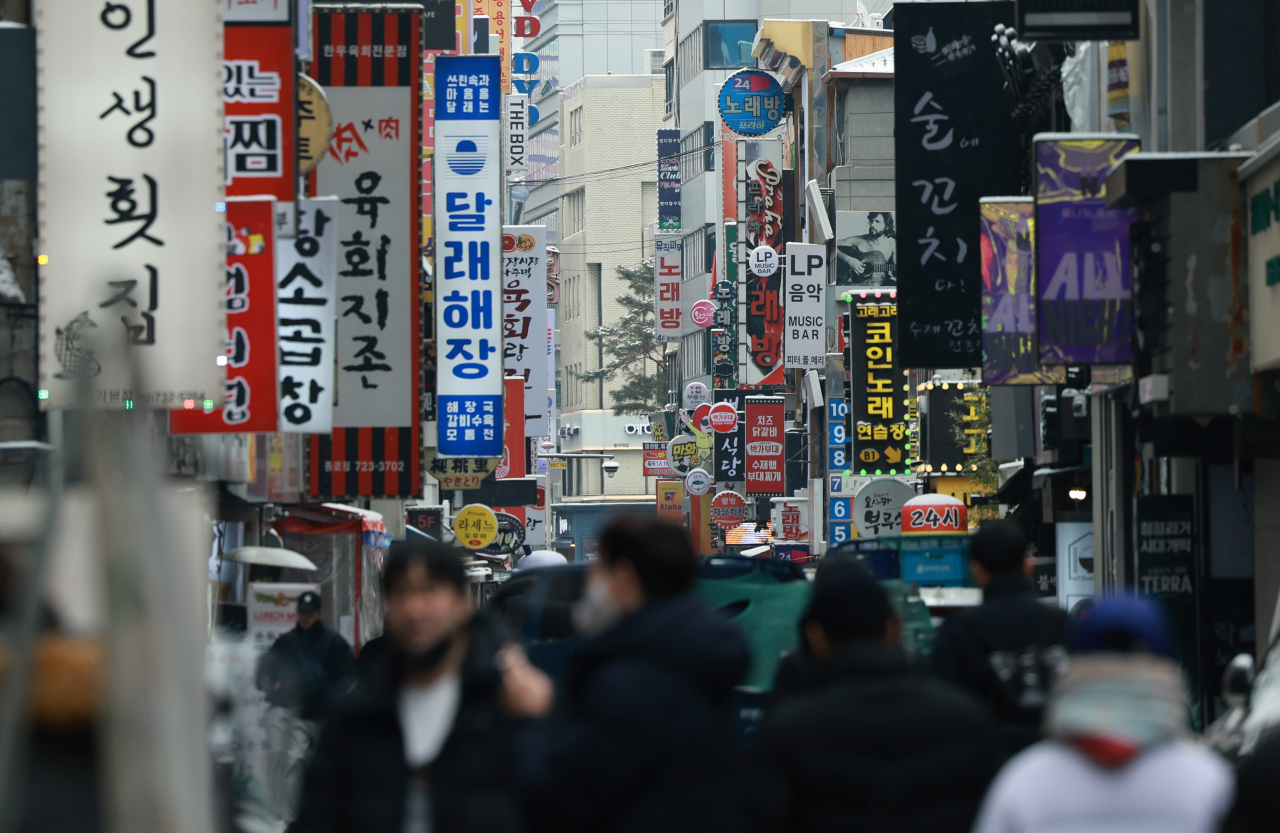 |
Pedestrians walk along restaurant signs along a back alley in Seoul. (Yonhap) |
More than 1 in 5 young adults are suffering huge debt in the face of soaring housing costs or living expenses, data showed Monday.
According to a recent study by the Korea Institute for Health and Social Affairs, a state-run research institute, more than 21 percent of householders aged between 19 and 39 saw their debt-to-income ratios exceed 300 percent as of 2021, meaning their level of debt was more than three times their income.
The proportion of young people with debt ratios above 300 percent has risen steadily since 2012, when it was around 8.4 percent.
Two-person households, those raising kids, and greater Seoul residents with low levels of income were more likely to be heavily in debt, the data showed.
In other measures of indebtedness, over 25 percent of young householders were using more than 30 percent of their income to repay their debts. The ratio saw a sharp increase in the past nine years compared with 15.7 percent in 2012.
This could leave young adults who took out loans to buy houses or financial assets like stocks or cryptocurrencies susceptible to the monetary tightening, according to the report. The Bank of Korea has been raising rates to curb inflation in the wake of the economic slowdown.
"A lengthy economic slowdown will trigger a fall in the value of asset holdings, or an increase in debt. This could leave the younger generation exposed to threats of becoming marginalized, threatening to create an economic powder keg and casting a shadow on the outlook for economic recovery," noted Kwak Yoon-kyung, a Kihasa researcher who led the study.
The study also showed that these young adults' average annual outstanding debt more than doubled during the cited period, from 34 million won ($25,800) in 2012 to 84.5 million won in 2021.
The higher cost of living for the young generation has been suggested as one of the culprits behind Korea's low fertility rate. In many cases, they take loans to cover housing costs or living expenses, or to invest in risky assets in search of a financial windfall big enough to let them purchase a home.
Korea is projected to have 20 percent of its population aged 65 or above by 2025. At the same time, the fertility rate is declining sharply, breaking its own record for the world's lowest fertility rate in with a figure of 0.78 for 2022.
The Yoon Suk Yeol administration has been offering to write off debts for those aged 34 or younger since 2022 through a debt relief program called the Credit Counseling and Recovery Service. The age limit on those eligible for the program will be repealed in March, according to the Financial Services Commission.






![[Today’s K-pop] Blackpink’s Jennie, Lisa invited to Coachella as solo acts](http://res.heraldm.com/phpwas/restmb_idxmake.php?idx=644&simg=/content/image/2024/11/21/20241121050099_0.jpg)
